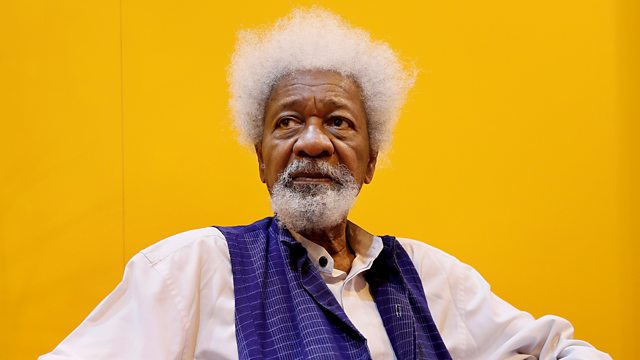
We all like to think of our literary heroes as immortal — especially Professor Wole Soyinka. For so long, this venerable figure of African letters appeared untouched by age and time; indeed, he turned 85 this year. So it came across as a real shock when we learned that Soyinka had been previously diagnosed with prostate cancer. Soyinka, it seems, was as human and as susceptible to mortal travails as the rest of us.
In a recent mini-documentary with BBC Life Clinic’s Charles Mboglu, Soyinka revealed that he was diagnosed with prostate cancer during one of his routine check-ups in 2014. The news hit his family hard. “She just put her head on the steering wheel like that,” Soyinka said of his wife, recalling the moment they both learned of his condition. “I said start the car now. She just sat there like that.”
Soyinka, however, was optimistic. “I said, ‘Don’t worry, we are going to fight this together,'” he told Mboglu. The cancer, according to Soyinka, was at its earliest stages when it was diagnosed, and so not irreversible. Five years later, it is safe to say Soyinka has recovered from it and is in good health.
The doctors treated Soyinka with proton therapy. The therapy, according to BBC Life Clinic, is not yet available in Nigeria even though 13,000 cases of prostate cancer were reported there in 2018 alone. In the mini-documentary, Soyinka states that it is “a shame” that such treatments are currently unavailable in the country. “I do not see why that kind of treatment or similar treatment should not be available,” he says. “I don’t understand why there should not be a choice.”
The documentary also captures Soyinka’s strategy for maintaining his health. “I don’t go to the gym, and I do not jog,” he says. In fact, as he adds with typical wryness, he thinks that some of these joggers he sees on the street “should go and jog behind walls, they look ridiculous.” Soyinka opts instead to go for walks, or into the bush to hunt.
According to BBC Life Clinic, Soyinka “is on the board of the African Cancer Centre and his story remains an inspiration to many still fighting cancer.” “Cancer is not a death sentence,” Soyinka declares. “It’s a labor of willpower. Some hard labor is involved, but ultimately, you can be victorious.”
Below is the BBC Life Clinic video. Long live Wole Soyinka!
CORRECTION: An earlier version of this post included the phrase “Soyinka states that he does not see why Nigerians must travel abroad to receive such treatment for cancer.” Although our coverage of this BBC mini-documentary was always clear on the point that Soyinka was making — that treatments like proton therapy, currently unavailable in Nigeria according to the mini-documentary, could be made available in Nigeria — we have removed the phrase to make it clear that we do not intend to suggest in any way that Wole Soyinka was criticizing those who go abroad for medical treatment. Rather, as the original and current title of our coverage reflects, we recognize that Soyinka’s critique in the mini-documentary, if any, is of the system and not individuals.








COMMENTS -
Reader Interactions